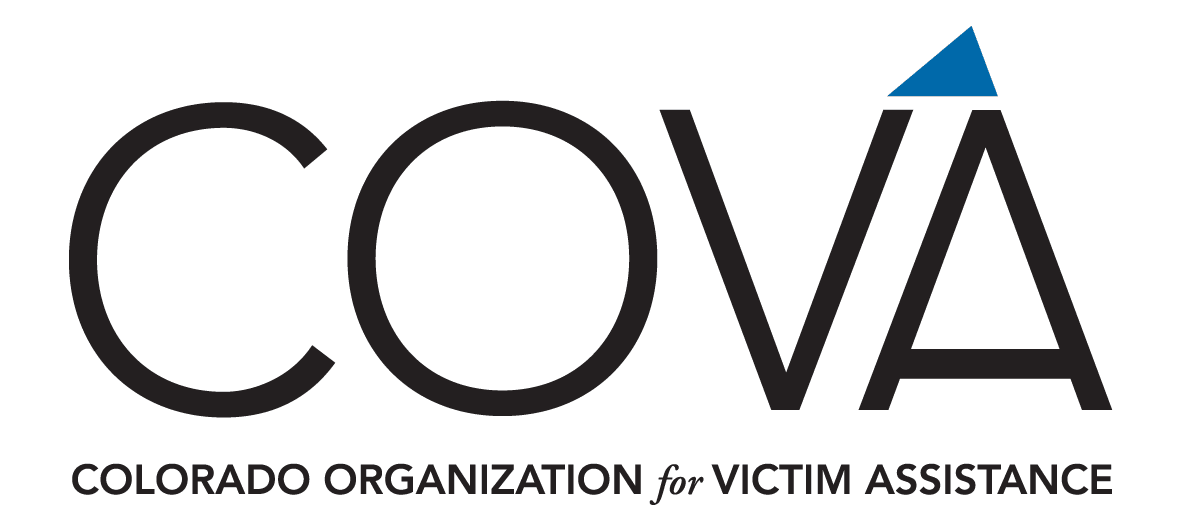Each year thousands of individuals and families suffer from the emotional, physical, psychological, and financial impact of crime victimization. The aftermath of a violent crime can create serious financial hardship for crime victims and their families as they try to recover and put the pieces of their life back together.
The purpose of the Crime Victim Emergency Fund Program is to alleviate some of the financial burdens that crime victims experience as a direct result of the crime and whose needs cannot be met through crime victim compensation programs or other financial resources. The Crime Victim Emergency Fund staff work directly with crime victim advocates who can apply for financial assistance on behalf of the crime victims they are serving.
The Crime Emergency Victim Fund Program receives federal and state grant funds to provide this assistance and the availability of funds can fluctuate depending on the grant awards.
We are unable to accept applications directly from crime victims or any professionals who are not directly working in the crime victim advocacy field. If you are looking for assistance, reach out to your victim advocate and ask them to contact COVA.
The fund can assist with expenses such as rent, utilities, moving expenses, short-term emergency shelter, and transportation. For the complete list of assistance and the supporting documentation needed for each type of assistance, please click here.
It is important to note that the crime victim’s financial hardship needs to be directly connected to a recent crime/victimization.
The fund cannot cover the following:
1) Any expenses that can be met through other sources, such as Crime Victim Compensation, DHS services, etc.
2) Any past-due bills that pre-date the date of the crime unless the reason for unpaid bills is directly related to the crime or victimization.
3) Any payments where the crime victim’s name is not listed on the payment documentation (e.g. lease , utility bill, invoice, etc.).
4) Payments or reimbursements cannot be made for the following expenses:
• Security deposits
• Hotel incidentals
• Damage coverage (i.e. damage to hotel room, damage to a moving truck or trailer, etc.)
• Alcohol, tobacco, cannabis products
• Cable, internet, streaming services
• Non-licensed childcare
• Gift cards
• Any luxury items
Crime victim advocates who are directly serving crime victims in the state of Colorado can apply for assistance on behalf of the crime victim. Applications and technical assistance with applications can be provided directly to victim advocates, upon request. To request an application, please email VictimEmergencyFund@coloradocrimevictims.org or call 303-861-1160.
Please note, we are unable to accept applications directly from crime victims or any professionals/service providers who are not directly working in the crime victim advocacy field (e.g. service providers in homeless shelters, substance abuse programs, mental health programs, etc.). We highly encourage non-victim advocacy service providers to collaborate with crime victim advocates through law enforcement, district attorney’s offices, or domestic violence advocacy programs to assist in applying for funds on behalf of crime victims.
Crimes do not have to be reported to law enforcement. However, the crime victim’s financial need must be from the direct result of a recent crime occurring within six months of the request. Funds cannot cover non-criminal financial hardships. For example, if an individual is unable to pay their rent and utilities because they lost their employment due to their company’s layoffs and not as a result of a crime, the fund could not assist with this hardship.
The length of time to process applications may vary depending on the immediacy of the situation and whether applications are fully complete with all of the accurate supporting documentation. Applications with all of the necessary supporting documentation are processed on average within 1-5 business days. We encourage victim advocates to contact the COVA’s Crime Victim Emergency Fund staff with any questions on completing applications and/or obtaining the required documentation.
Completed applications are signed applications that include all of the answer fields related to the specific request fully completed. Incomplete applications contain missing/blank answer fields or the applications are submitted without the necessary and accurate documentation (e.g. copy of the full lease with victim’s name and required signatures, itemized invoices and receipts, utility bills with victim’s name, etc.). Incomplete applications will not be processed. We encourage victim advocates to contact COVA’s Crime Victim Emergency Fund staff with any questions on completing applications and obtaining the required documentation.
The COVA Emergency fund is not a long term assistance program; however, depending on the type of assistance, we can provide additional funding to previously approved applications on a case-by-case basis. Please contact the Crime Victim Emergency Fund staff to request extensions to existing approved applications.
Upon approval of an application, payments will be made through the following methods:
1) Check or Credit card payments sent directly to the vendor (e.g. landlords, utility companies, airlines, etc.)
• Payments made by check are mailed via USPS
• Credit card payments are made over the phone to the vendor or through a vendor’s website
2) Reimbursements to the victim advocate or agency/organization with proof of payment
• All reimbursement requests need to have an itemized receipt enclosed with the application.
• If a victim advocate needs to purchase items for a crime victim and would like reimbursement through COVA, the advocate must send an application to COVA and have it approved PRIOR to purchasing any items. We cannot reimburse agencies without prior approval of request.
Important note, payments or reimbursements cannot be made directly to victim(s) or their family/friends.
Common reasons for applications to be denied include, but are not limited to:
1. The financial need or request is not directly related to a recent crime and is due to a situational hardship.
2. The application was incomplete or missing documentation and/or itemized receipts.
3. The financial need or request can be met through other sources, such as Victim Compensation, DHS services, etc.
4. The request is outside of the list of items the program can cover.
5. The agency or organization did not receive pre-approval for their reimbursement request with COVA before paying out-of-pocket.
Our goal is to assist as many eligible crime victims as funding allows. If an application is denied, we encourage victim advocates to contact COVA’s Crime Victim Emergency Fund staff with any questions.
Yes! COVA’s Crime Victim Emergency Fund staff provides regular training (either in-person or virtual) to victim advocates on the emergency fund. Please contact the Emergency Fund Director, Mandee McLane, at 303-861-1160 or Mandee@coloradocrimevictims.org to schedule a training for you and your staff!


